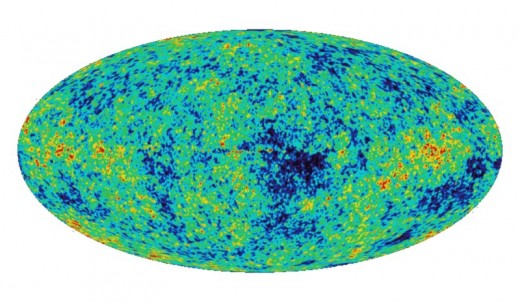Reconstructing God

In Deconstructing God I concluded that the ‘God’ constructed by mainstream religion does not actually exist. There is no supernatural creator; no omnipotent, omniscient being “out there” somewhere, separate from you and me and the rest of the universe. Anything and everything that happens does so naturally, in purposeful accordance with the One Law.
Agnosticism
I do not include agnosticism among the choices, because in my view agnosticism is is non-committal: the agnostic chooses not to choose.
So, as far as what and what not to believe, atheism appears to be a sensible choice. But is it the only sensible choice? And more importantly, is it the most sensible choice?
I say no, it is not. There is one other (and only one other) choice that appears to me to be more sensible. And that is pantheism.
God cannot be sensibly defined as any specific thing. While it is reasonable to conclude therefore that God is nothing, one may just as reasonably conclude that God is everything. That is, God and Nature are one and the same.
But why would we want to go there? Isn’t that just sophistic wordplay, indulging in what one of my mentors liked to call “squishy thinking”?
No, it is not. Pantheism has deep historical roots. In fact, all contemporary religions probably descended from pantheistic progenitors. For example, paganism (the ‘religion’ of most if not all primitive cultures) is a form of pantheism. So are many of the Eastern religions. And though there may be superstitious elements to these traditions, the superstition is not the essence of the belief system, but rather something that gets entangled in the interpretation: human beings are naturally prone to superstition, which rears its head in most of our endeavors (not just religion). One can be a bona fide pantheist without being superstitious however, and without resorting to magical thinking: for if God and Nature are perceived to be the same thing, there is no need to ever invoke anything supernatural.
So why might we choose to equate God with Nature?
There is really only one reason, and it is entirely subjective. The word ‘God’ clearly connotes that which is Divine. If you consider something to be God, then you engage it with an attitude of respect and reverence. So if you equate God with Nature, then you are going to treat Nature (and all its creatures) as something sacred. Given what we humans have done (and continue to do) to the natural world—and hence (via ecological feedback) to ourselves—it seems to me that such an attitude would be of immense benefit.
Those perennial adversaries of the Western world, Science and Religion, are equal parties to the great profaning of Nature, which has produced many of the unhappy predicaments faced by modern civilization. On the one hand we are taught by theists of the Abrahamic religions that God “the father” made man in “his” image, giving him dominion over nature (and, not coincidentally, women), implying that nature is beneath us, something to be used. On the other hand we are taught by scientists of the Baconian-Cartesian-Newtonian tradition that nature is nothing but a set of clock-like mechanisms that can be fully understood by reverse engineering, and from thence re-engineered for our use.
Talk about sucking the fun and wonder out of life. Is it any wonder that we have trashed our planet, and in the process, ourselves?
A plague o’ both your houses!
Here’s what I think:
Panpsychism: the rational basis for pantheism
Pantheism is logically entailed by the metaphysical position known as 'panpsychism', which offers an alternative to the problematic dualism of Descartes that undergirds most contemporary thought. The problem with dualism is that it offers no middle ground in which subjective mind and objective matter can be integrated. So in accepting dualism, philosophers are forced to commit to one of two metaphysical poles: either 'realism' or 'idealism'. But neither of these polarized positions is really tenable, and neither can be proved. And so the dialectic lives on, unresolved. Panpsychism solves this problem by positing that there is a subjective dimension to all of nature, including matter itself. From this 'internalist' perspective mind is the subjective manifestation of matter: one does not exist without the other. Note that this does not mean that matter is conscious, as mind (subjectivity) can (and does) exist in an unconscious state. In fact, it can be argued that consciousness is a speciically human manifestation of animal sentience, which is in turn a specific living manifestation of mind. This gives the specification hierarchy {mind{sentience{consciousness}}}.
There is no empirical reason for choosing dualism over panpsychism, or vice versa. The only way a committment to one position or the other can be rationally justified is through metaphysics, i.e., by reasoning based on logic and parsimony. In my view, panpsychism makes a lot more sense than dualism. And if, as panspsychism holds, the universe can be said to be a self-creating subjective self, then the universe is, in essence, "God".
We are all related, all part of one Being. All life on this planet is composed of cells, every one of which is a lineal descendent of a single cell that emerged from the primordial soup some 4 billion years ago. And although individual organisms appear to be autonomous, that is an illusion—we all are part of, and depend on, a functioning ecological system that extends throughout the earth's biosphere and depends on energy flowing from the Sun. So in a very real sense we are all part of a single Creature that has been alive for billions of years. But it goes way beyond that. We are all made of the same stuff—matter forged in stars that condensed out of galaxies that accreted from particles that precipitated out of the expanding universe after its Big Bang conception some 12 billion years ago. And at the quantum level, what happens at one end of the universe can still communicate with what happens at the other end. For light there is no time. So when we peer through our most powerful telescopes into the far edges of space, we can see the inception of our Being.
If that doesn’t just blow your mind I don’t know what will (in which case I’m afraid you may be beyond help).
As I said before God is nothing objective and nothing if not subjective. The mistake that most people on both sides of the God argument make is to think that God is some external thing. But that misses the mark entirely. Belief in God, to the extent that it is not superstition, is an attitude: one of respect for, humility towards, and love of that which is. And that which is resides within, as much as it resides anywhere and everywhere else. Some folks get it, others don’t.
Objectively, God is nothing. So from an externalist perspective, the choice is between atheism and superstition, with the rational choice being atheism.
Subjectively, God is everything. So from an internalist perspective, the choice is between pantheism and nihilism, with the rational choice being pantheism.
So, to me the usual debate about the existence of God appears silly. Of course God exists—but subjectively rather than objectively, as an attitude toward existence itself.
The real (non-trivial) debate then concerns the nature of Reality. We are engaged in a dialectic between objectivity (externalism) and subjectivity (internalism). Althought the contemporary world has been constructed and dominated by externalists (both scientific and religious), it seems to me that for existential matters, the internalist perspective is the one we need to be nurturing if humanity is ever to grow up.
But that gets to a bit more deeply into philosophy and psychology than I care to go just now, so I will leave it for another hub.









